The sweetest sound for a parent is their baby’s first words. These toddler vocabulary development milestones and activities will help you get there faster.
Our main focus here at ADAM & Mila is to provide you with practical and easy to apply ideas for your child’s best development. The better you know and understand the process of your baby’s developmental milestones, the easier it’ll be to find activities that promote learning designed specifically for their early childhood needs.
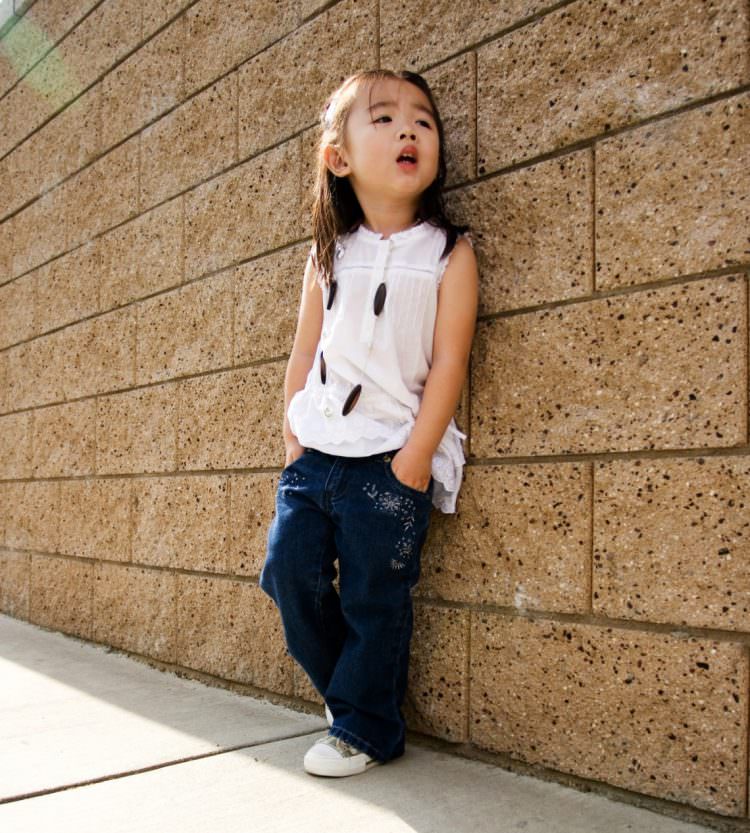
Language Development
Did you know that language acquisition starts as early as 5 months into your baby’s growth? In fact, talking is actually one of your baby’s final stages of language development. What professionals call “receptive language” is the ability to understand words and follow simple instructions, which develops much sooner than speech. To arrive to that Emerald City, you must follow the yellow brick road of our language development activities.
Before actually having the ability to articulate several words into a sentence, babies start babbling in order to indicate something or someone they want. Stimulate your baby’s communication skills by engaging with her baby talk. Respond every time she babbles something, even if you don’t understand what she wants to say. The best way of communicating is by patiently taking the time to decode what the baby is trying to say while you talk in their own language.
From Baby Talk to Vocabulary Development
One of the most fascinating things about this developmental milestone is that you’ll become a baby talk interpreter. Spending so much time with your little one and paying attention to their every gesture and “ooh,” “aah,” or different attempts of words will turn you into a baby talk expert. After your baby has uttered their first words, it’s time to submerge into the fascinating world of baby talk.
Vocabulary Development
The definition of the word vocabulary is “the set of words within a language that are familiar to that person. A vocabulary usually develops with age, and serves as a useful and fundamental tool for communication and acquiring knowledge.” After the first year, your baby will start an ongoing process of vocabulary development. Your role is to come up with fun activities that’ll contribute to enhancing this stage. These include:
- Reading to your child
- Talking with your child every day
- Gently correcting their speech if there are words they are learning incorrectly
- Try a song! Our personal favorite is Baby Bumblebee.
Learning New Words
Parenting a child in this time in history is harder than any other, as our children are surrounded with so much stimuli it seems like they’re always 5 steps ahead of us. However, this challenge is a great opportunity to get creative with our kids. That’s why we’ve rounded up some very helpful ideas to contribute to your child’s development that will help enhance his vocabulary.
The Vocabulary Spurt
After the second year, your baby will show an exponential increase of vocabulary, also known as the vocabulary spurt. This is an especially key time to encourage your child to learn a second language, as it will develop at the same level as the mother tongue.
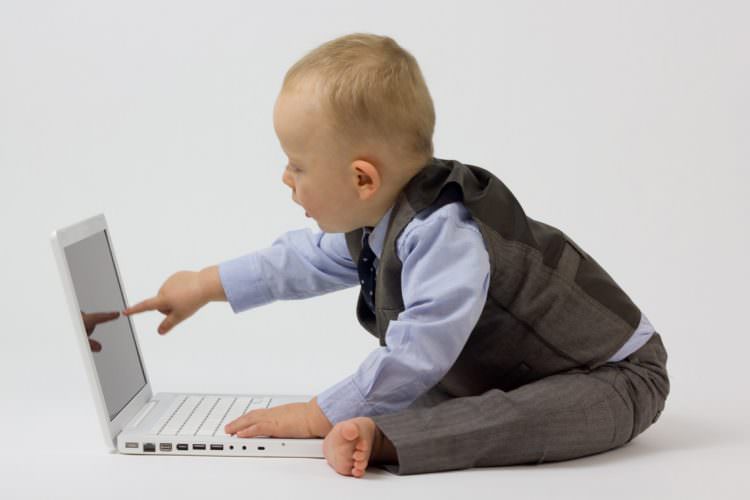
Vocabulary Acquisition
A natural consequence of the vocabulary spurt, this is one of the final stages of vocabulary development. By this time, your kid will be able to coherently articulate sentences with specific terminology for a certain subject, for both oral and written communication.
Within the process of vocabulary acquisition, you’ll find what is professionally known as core vocabulary – a set of simple words used in any context, across cultures.
Child Vocabulary and Common Concerns
It’s a common mistake for parents to run to a speech specialist when they notice a low level of vocabulary in their children, or a developmental delay. As a caregiver, you need to be informed correctly as to what is the average expected vocabulary according to your child’s age.
Read on and notice how your child’s language evolves from baby vocabulary to basic and finally toddler vocabulary.
Correct Use of Mama or Dada
Development Milestone emerges from age 11 to 14 months.
The most anticipated moment for you as a parent comes when around the first year of age, your little one says “mama” or “dada.” You’ll notice that your baby will call you or your spouse whenever you leave their sight. You might want to record this –for both research and sentimental reasons (wink-wink).
Uses One to Three Words
Development Milestone emerges from age 12 to 15 months.
Along the way your toddler will quickly add between one and three words intentionally every time they want something, or to get your attention specifically. Notice they’ll commonly mention things that are part of their receptive language –like toys, food, pets or people they see on a daily basis. Your child will start to identify these common items and call them by name, however simple it comes out.
Uses Interjections
Development Milestone emerges from age 12 to 15 months.
Your child will learn when to say any of the common exclamatory expressions: “oh oh,” “aww,” “no-no,” “oops,” and “yeah!” They will use these all while making a facial expression at the same time. Grab your phone and sneak behind your baby to find them saying, “Uh oh!” to themselves when facing a situation you’ve previously said, “Uh oh!” to. Priceless!
Uses No Correctly
Development Milestone emerges from age 13 to 15 months.
This happens when your child realizes that “No” is a response. They will use it mostly when they intend to protest about a situation they don’t agree with from taking back a toy to an invitation to get more food. They might put their hand in your face –so as to STOP you- or shake their head from left to right.
Knows Familiar Objects
Development Milestone emerges from age 13 to 18 months.
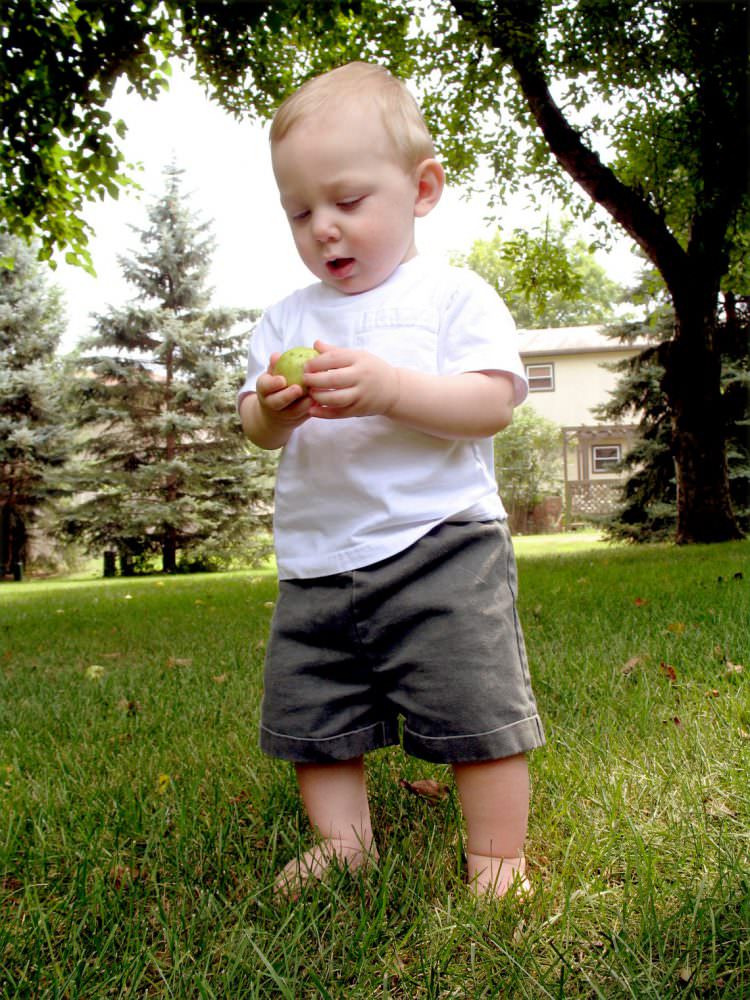
That is, the ability to correctly identify an object when asked, “What’s this?” Always make sure to ask your child about familiar objects. That is, items they’re constantly surrounded by.
Uses 10-15 Words
Development Milestone emerges from age 15 to 18 months.
Part of the vocabulary development process, your child will soon start to appropriately use at least 10 words in a sentence, naming common and familiar objects, describing them slightly, or indicating what he wants. As your child enhances his vocabulary, take time to play with him and encourage naming things, not just gesturing them.
Uses 15-20 Words
Development Milestone emerges from age 17 to 21 months.
Just like in the previous milestone, this is also part of the developmental process. In this stage, already referred to as the “vocabulary spurt,” your child will continue to enhance their vocabulary with more new words each day, depending on how many words you teach them through play, songs, books, movies or any other kind of stimuli.
Knows Own Name
Development Milestone emerges from age 18 to 24 months.
During this specific stage, your child most likely can name himself when asked, “What is your name?” Or your child can use his own name (his first name) to indicate a certain object that is his own possession. A fun way to secure your child knowing their name is by turning the answer into a game, like “Knock, knock” or “Hide and Seek.”
Related Activities
Knows Two Pictures
Development Milestone emerges from age 19 to 22 months.
In this instance, your child should be able to identify two pictures that represent symbols of things she is familiar with at home, such as toys, foods, books, and so on. Your child might name the pictures spontaneously, depending on their process, or in response to someone pointing at the picture and asking them, “What’s this?”
Adds Verbs, Nouns, & Modifiers
Development Milestone emerges from age 20 to 24 months.
During the course of the vocabulary spurt, your child will add nouns, modifiers and verbs into his sentences. This can be encouraged during play time, asking your child questions like, “Where did that go?” or “What is mommy doing?” The main idea of these questions is to stimulate your child’s ability to develop proper use of grammar.
Knows Three Pictures
Development Milestone emerges from age 21 to 24 months.
This is your child’s ability to name three pictures or more, using words they already know through play time. Exciting, huh?
Learns New Words
Development Milestone emerges from age 24 to 27 months.
This occurs when your child starts to ask questions about novel objects, or items she is becoming familiar with for the first time. When an object seems new, she will ask, “What is that?” and then she will have learned a new word.
Related Activities
Knows Five Pictures
Development Milestone emerges from age 24 to 29 months.
It’s the stage where your child can now name five or more pictures when asked, “What is this?” Their process is indeed speeding up.
Says Egocentric Pronouns
Development Milestone emerges from age 24 to 30 months.
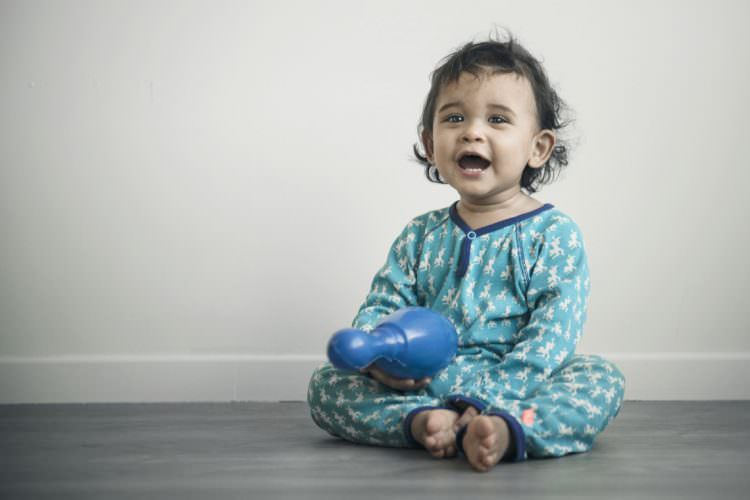
At this stage, your child is able to identify something or someone as a personal possession, using the pronoun “mine” or “my” becomes much more frequent.
Uses 50+ words
Development Milestone emerges from age 24 to 31 months.
When this stage happens, your child is consequently able to choose at least 50 words to express an idea, or describe something they are very familiar with. Sometimes they may use the same word to describe different things, if those items are similar in some way.
Says Size Words
Development Milestone emerges from age 25 to 30 months.
This stage is successfully achieved when your child can tell the difference between big and small, large or tiny, long or short. These are all known as size words. A good way of telling if your kid can correctly notice the difference is by letting them experiment with different versions (sizes) of the same object and asking them which one they want.
Uses Self Pronouns
Development Milestone emerges from age 27 to 40 months.
Unlike the milestone where this is initially acknowledged, in this stage, your child will already be able to refer to herself by using a pronoun such as “me” correctly.
Uses One Preposition
Development Milestone emerges from age 28 to 33 months.
That is, the ability to correctly state the location of an object or its relationship with another. Ask your child to tell you where a specific item is. Make sure it's one that is within their familiar surroundings.
Knows Eight Pictures
Development Milestone emerges from age 29 to 36 months.
This happens when your child can spontaneously name eight or more objects represented in pictures.
Knows Full Name
Development Milestone emerges from age 30 to 33 months.
During this stage, your child is able to respond to the question, “What is your name?” by providing their full name. This ability can also be encouraged by specific games where you can ask your child to provide his name.
Related Activities
Uses 200+ Words
Development Milestone emerges from age 30 to 35 months.
With every new experience comes a new word. At this stage, your child will be able to describe, name and classify different objects, people, and places.
Uses Two Prepositions
Development Milestone emerges from age 33 to 36 months.
Your child will be able to now verbalize two prepositions correctly. They may start saying phrases similar to, “I want the ball out.” or “The ball is under there.”
Uses 300-1,000 Words
Development Milestone emerges from age 35 to 72 months.
Your child now has a significant number of life experiences which provides a specific expressive vocabulary that helps him communicate better with others. At this stage, children are able to correctly use pronouns, adjectives and nouns.
Uses Three Prepositions
Development Milestone emerges from age 35 to 72 months.
Your toddler is now able to verbalize three prepositions at once. He may now start using more complex prepositions like “under” or “through” to describe where an object is.
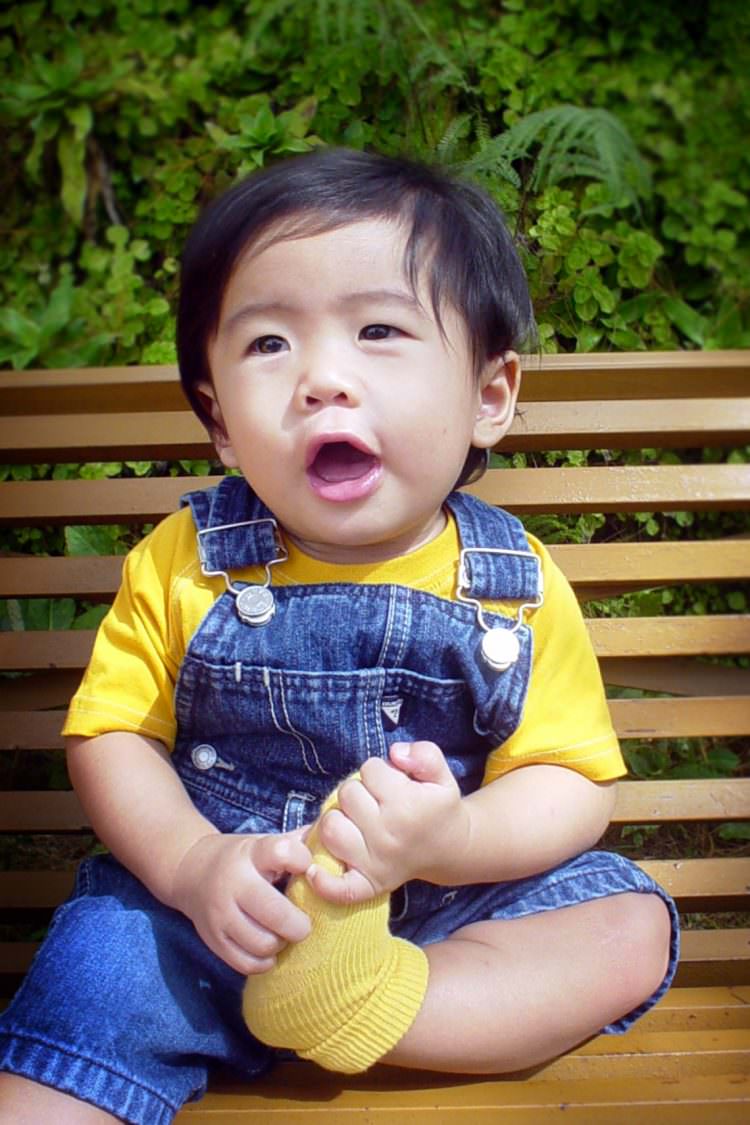
Those are roughly a handful of the many milestones your child will achieve during his or her first years of life. Your adventure as a parent has just begun, and if you notice your toddler is not necessarily following the common parameters of language development, this is not by any means a reason to be alarmed. Remember, each child is different and unique. However, if after a few months your child’s behavior shows little improvement, be alert.
We hope this information was useful and inspirational to you as a parent, now that you know what to expect. Help your toddler learn faster and better with our suggested activities. Please feel free to comment below, we love to receive feedback! Don’t forget to share the love on your social networks!





This was really helpful. I truly apprciate the information.